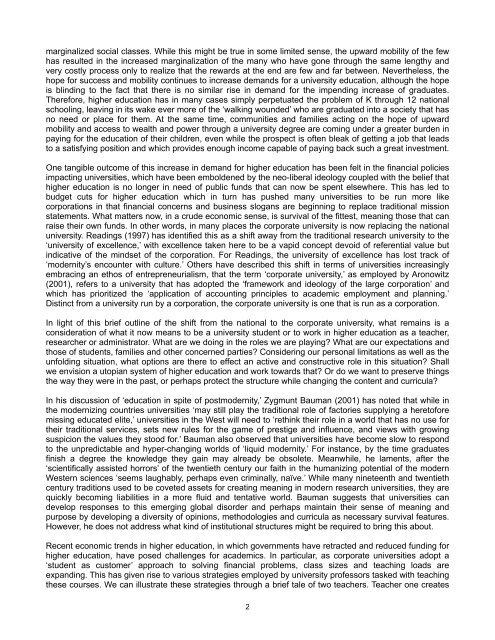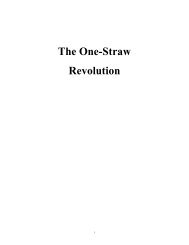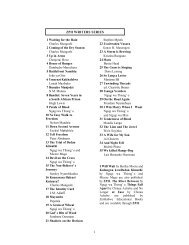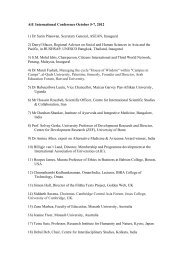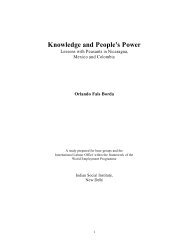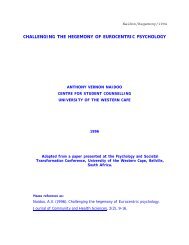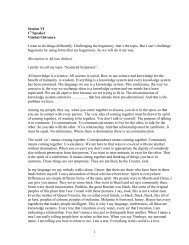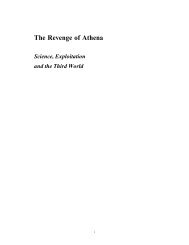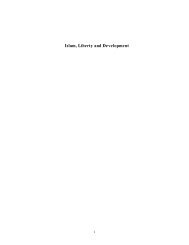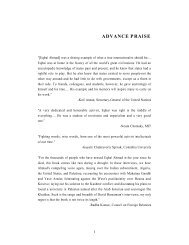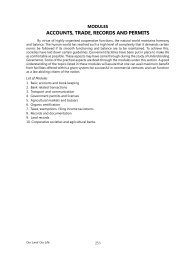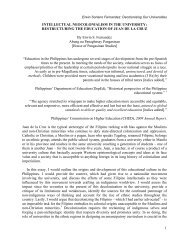HIGHER EDUCATION BETWEEN ELITISM AND ... - Multiworld India
HIGHER EDUCATION BETWEEN ELITISM AND ... - Multiworld India
HIGHER EDUCATION BETWEEN ELITISM AND ... - Multiworld India
You also want an ePaper? Increase the reach of your titles
YUMPU automatically turns print PDFs into web optimized ePapers that Google loves.
marginalized social classes. While this might be true in some limited sense, the upward mobility of the fewhas resulted in the increased marginalization of the many who have gone through the same lengthy andvery costly process only to realize that the rewards at the end are few and far between. Nevertheless, thehope for success and mobility continues to increase demands for a university education, although the hopeis blinding to the fact that there is no similar rise in demand for the impending increase of graduates.Therefore, higher education has in many cases simply perpetuated the problem of K through 12 nationalschooling, leaving in its wake ever more of the ‘walking wounded’ who are graduated into a society that hasno need or place for them. At the same time, communities and families acting on the hope of upwardmobility and access to wealth and power through a university degree are coming under a greater burden inpaying for the education of their children, even while the prospect is often bleak of getting a job that leadsto a satisfying position and which provides enough income capable of paying back such a great investment.One tangible outcome of this increase in demand for higher education has been felt in the financial policiesimpacting universities, which have been emboldened by the neo-liberal ideology coupled with the belief thathigher education is no longer in need of public funds that can now be spent elsewhere. This has led tobudget cuts for higher education which in turn has pushed many universities to be run more likecorporations in that financial concerns and business slogans are beginning to replace traditional missionstatements. What matters now, in a crude economic sense, is survival of the fittest, meaning those that canraise their own funds. In other words, in many places the corporate university is now replacing the nationaluniversity. Readings (1997) has identified this as a shift away from the traditional research university to the‘university of excellence,’ with excellence taken here to be a vapid concept devoid of referential value butindicative of the mindset of the corporation. For Readings, the university of excellence has lost track of‘modernity’s encounter with culture.’ Others have described this shift in terms of universities increasinglyembracing an ethos of entrepreneurialism, that the term ‘corporate university,’ as employed by Aronowitz(2001), refers to a university that has adopted the ‘framework and ideology of the large corporation’ andwhich has prioritized the ‘application of accounting principles to academic employment and planning.’Distinct from a university run by a corporation, the corporate university is one that is run as a corporation.In light of this brief outline of the shift from the national to the corporate university, what remains is aconsideration of what it now means to be a university student or to work in higher education as a teacher,researcher or administrator. What are we doing in the roles we are playing? What are our expectations andthose of students, families and other concerned parties? Considering our personal limitations as well as theunfolding situation, what options are there to effect an active and constructive role in this situation? Shallwe envision a utopian system of higher education and work towards that? Or do we want to preserve thingsthe way they were in the past, or perhaps protect the structure while changing the content and curricula?In his discussion of ‘education in spite of postmodernity,’ Zygmunt Bauman (2001) has noted that while inthe modernizing countries universities ‘may still play the traditional role of factories supplying a heretoforemissing educated elite,’ universities in the West will need to ‘rethink their role in a world that has no use fortheir traditional services, sets new rules for the game of prestige and influence, and views with growingsuspicion the values they stood for.’ Bauman also observed that universities have become slow to respondto the unpredictable and hyper-changing worlds of ‘liquid modernity.’ For instance, by the time graduatesfinish a degree the knowledge they gain may already be obsolete. Meanwhile, he laments, after the‘scientifically assisted horrors’ of the twentieth century our faith in the humanizing potential of the modernWestern sciences ‘seems laughably, perhaps even criminally, naïve.’ While many nineteenth and twentiethcentury traditions used to be coveted assets for creating meaning in modern research universities, they arequickly becoming liabilities in a more fluid and tentative world. Bauman suggests that universities candevelop responses to this emerging global disorder and perhaps maintain their sense of meaning andpurpose by developing a diversity of opinions, methodologies and curricula as necessary survival features.However, he does not address what kind of institutional structures might be required to bring this about.Recent economic trends in higher education, in which governments have retracted and reduced funding forhigher education, have posed challenges for academics. In particular, as corporate universities adopt a‘student as customer’ approach to solving financial problems, class sizes and teaching loads areexpanding. This has given rise to various strategies employed by university professors tasked with teachingthese courses. We can illustrate these strategies through a brief tale of two teachers. Teacher one creates2


